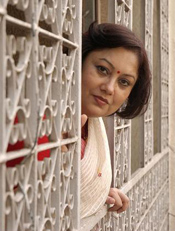One of Indian publishing’s most visible faces talks about spotting great authors and her new job.
This is all a bit fraught. The day is hot, I’m getting late, she’s on time but the restaurant she picked is unexpectedly closed, she decides on another, a new place named Lah! three floors up from a tiny side lane in Hauz Khas Village, which passersby have not yet heard of and cannot offer directions to...
So, 15 minutes late, Rrishi Raote falls into a seat across from Rudrani “Chiki” Sarkar, lately Editor-in-Chief of publisher Random House India and now Publisher of Penguin India. Lah! is thankfully restful to begin with, isolated as it is near the rooftops, a single dim and cool room with deep green walls and a shiny floor.
Sarkar has studied the menu, so she orders for us both. Hers is a complicated-sounding noodle bowl with corn, black mushrooms, chicken and lamb, flat noodles and “soy garlic cilantro”. (Noodles? I think, impressed — isn’t that reckless, because potentially messy, for a working lunch?) Mine is a Malay chicken curry with rice. This will be washed down with beer.
Sarkar is, for an Indian publisher, an unusually visible figure, being quoted, written about and writing off and on in papers and magazines. In part the prominence is inherited – her father is Aveek Sarkar, whose family controls the Kolkata-headquartered media company ABP Group – but it also comes from the way she shaped Random House India and its publishing programme, the way she has made media-ready celebrities of her debut authors and commanded coverage on a scale not thought of by Indian publishers.

























